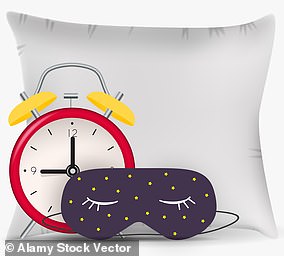A sleep scientist has revealed the foods you eat before bed that will ruin your sleep.
Dr. Cheri Mah, from San Francisco, California, a professor at the Stanford Center for Sleep Medicine, spoke to Dragon’s Den star Steven Bartlett on his podcast The Diary Of a CEO.
The mother-of-one revealed that people should avoid alcohol, caffeine, fried foods, sugary carbs and tomato-based foods, because they can trigger acid reflux, before bed if they want to optimise their sleep.
She said: ‘What we eat can affect our sleep… the stages of our sleep or how we sleep through the night, some of the smaller studies showed that what we eat can affect whether we wake up more during the night, affecting the quality of our sleep.
“I think we’re beginning to understand the connection between what we eat and how our gut responds to that.”Then, discover how this can potentially affect your sleep and ultimately your functioning during the following day.
Dr. Cheri Mah from San Francisco, California, revealed the foods you eat before bed that ruin your sleep and said school starts too early for teenagers on The Diary Of a CEO podcast
“But we We recognize from studies of sleep deprivation that people make different nutritional choices and eat cookies and ice cream later in the evening than if they were well rested.
Dr Cheri revealed there are ways to relax before bed to help you sleep better, saying slowing down a “racing mind” is key.
She said: ‘What I would recommend is spending 10 minutes processing your thoughts outside of bed, in dim light, every night. I would recommend you do stretches and deep breathing exercises to activate your parasympathetic system and calm your sympathetic system.’
Your parasympathetic nervous system is a network of nerves that relaxes your body after periods of stress or danger.
The sympathetic system is best known for its role in responding to dangerous or stressful situations.
The parasympathetic system basically undoes the work of the sympathetic division after a stressful situation.
She added: “That’s what I recommend to a lot of my athletes, if that’s not your thing, I recommend keeping a journal and getting your thoughts down on paper or writing a to-do list – those are easy things that we can all do, even if you start with five minutes today.”
‘It’s easier to slow down and then try to sleep than if you were driving 60 miles per hour on the highway and suddenly slammed on the brakes and jumped into bed, so you actually have a process for slowing down. It will help you prepare to sleep better at night.

Dr Cheri spoke to Dragon’s Den star Steven Bartlett (pictured) on his podcast The Diary Of a CEO
Dr. Cheri also revealed that studies have shown that school starts too early for children.
She said: ‘IIn California, this year was the first year that middle and high school start times were moved much later because studies show that when our students are better rested, they have higher attendance rates.
‘Their GPA and grades are much higher, there are fewer mental health issues, there are fewer car accidents, so these studies have been done over the last decade and longer where evidence has been gathered to help make decisions to start school later.
‘By high school age, many of those biological clocks are out of sync, and so students naturally want to go to bed later and wake up later.
‘This is how our sleep changes throughout the life cycle, but when they stay up late and then we cut their sleep short by forcing them to get up really early for school, they’re not getting enough sleep and that builds up as a sleep debt and therefore they’re not setting themselves up for success in school in learning and memory.
She concluded: “If we can change the start time and get these students a little more sleep, they will ultimately be better prepared for school, they will attend, they will have fewer car accidents and they will be healthier students.”


